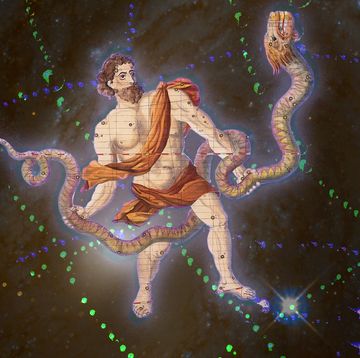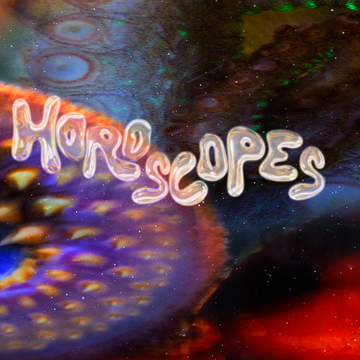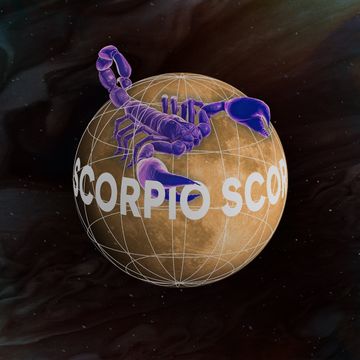The Symptoms
Crista Procopio, an entrepreneur from Phoenix, Arizona, remembers suffering from strange chest pains as a kid.
"I ignored it because nobody else thought it was a big deal," she says. "People always told me it was growing pains."
Sometimes she would also become nauseated and vomit — but never had any other symptoms to go along with it. She'd figure she just caught the flu.
She maintained a very active lifestyle, cheerleading and dancing with a pre-professional ballet company, even though she reached a point where she felt like she was about to throw up most of the time.
Still, nobody took her complaints seriously until her freshman year of college. That was when she became so ill that she couldn't get out of bed. She was extremely dizzy and fatigued, with chest pain that was almost unbearable. Plus, she lost 20 pounds from throwing up. She withdrew from college to focus on finding answers and getting better.
But every time she went to the doctor, she found she wasn't being taken seriously. Physicians attributed her symptoms to the stress and anxiety of starting college.
"One doctor told me I was PMS-ing and I almost threw my shoe at him," she remembers. "I actually got to the point where, when I got to a doctor's office, I would tell them what diagnostic tests I wanted them to run. I felt if it wasn't for me taking a step up, it would have severely delayed my ultimate diagnosis."
She saw a staggering number of doctors — about two dozen — and got nowhere. It wasn't until she got accepted by the Mayo Clinic in Arizona after a four-month wait that she finally found the answer.
The Diagnosis
In July 2010, she walked into the office of the man who would change her whole understanding of her body. He was Dr. Brent Goodman, a top specialist in the Southwest in autonomic disorders.
The autonomic nervous system controls involuntary functions of your body, like your heart rate, blood pressure, breathing, and digestion. Thus, any damage to the system can cause a wide array of symptoms.
Crista started reeling off hers: her difficulties with digestion, fatigue, chest pains, numbness in her fingers and toes, problems regulating her temperature, and severe migraines.
"Before I did any autonomic testing, just talking to him, he knew I had POTS," she says. "He told me I fit all the criteria."
POTS — Postural orthostatic tachycardia syndrome — is a neurological disorder that falls under the umbrella of dysautonomia, a broad term that describes any dysfunction of the autonomic nervous system. POTS is differentiated because its symptoms often include fainting and an abnormally rapid heartbeat.
Thirty to 40 percent of the time, POTS starts after an infection, even a minor one like a cold or flu. It's not clear why, but there may be genetic factors that predispose individuals to develop it, according to Dr. Goodman. It's a common condition that typically affects people in their teens to mid-40s, and is far more common in females, at a ratio of at least 7 to 1.
Crista proceeded to undergo testing to confirm Dr. Goodman's suspicions. There is no blood diagnostic, only a clinical exam. During one test, she was strapped to a flat table on her back and then the table was tilted slowly upward until she was standing. Normal people can easily handle that change in gravity, but Crista's heart rate rose and her blood pressure dropped. She also was tested on her ability to produce sweat and her heart rate when she held her breath.
All the results came back clear-cut: She fit the bill for POTS.
Now she wanted to know: What could be done about it?
The Aftermath
There is currently no cure for POTS, but steps can be taken to manage the symptoms. One of the main recommendations is a high-salt diet.
"The rationale for this is that the postural symptoms (the P) in this condition are thought to result from excessive pooling of blood volume in the lower limbs and abdomen," explains Dr. Goodman. "Additionally, most patients with POTS have low blood volume. Increasing salt and fluid intake results in blood volume expansion, which helps to minimize symptoms that result from excessive blood volume pooling."
Crista is supposed to have at least 10 grams of salt a day — the equivalent of about four cups of Ramen noodles.
"It was hard to adjust to at first because I hate salt," she says with a laugh. She eats a lot of Chinese food and pretzels, and drinks plenty of V-8, which is packed with sodium. She also takes about 60 pills a day, and gets a regular infusion of steroids to help her cope with her intense migraines.
In the meantime, she hasn't allowed the POTS to slow down her go-getter lifestyle — even though her doctors advise her to take it easy. She graduated with her bachelor's degree in only three years, and has since cofounded a company that specializes in early diagnostic testing for Alzheimer's disease.
"I don't want to give up who I am. I don't want an illness to define me, like, 'Hi, I'm Crista, the girl who's sick,'" she declares. "I still want to be a successful business woman, and have a family."
It's a daily struggle to find a balance between her ambition and her body's needs, and three years after her diagnosis, she doesn't claim to have it all figured out.
But she has founded a support group where POTS patients can connect; the group, called "With a Side of Salt," now has 1,400 members. She also tries to promote awareness of the condition to jump-start research funding, so she attends annual conferences, volunteers with Dysautonomia International, and works to connect autonomic specialists around the world.
"I definitely overbook myself," she says. "But I would do so much more if I could. I love helping people."
It's hard to say what the future will bring, since every POTS patient has a variable course, but luckily the condition does not result in progressive failure of the autonomic nervous system. Patients can live a regular life span and for some, symptoms improve to near normalcy, while for others, the condition has a more chronic course.
One thing is for sure: Crista is going to be busy.
"Right now, it feels like someone is carving out the side of my head with a knife," she admits. "But until someone is going to come up with treatment, I need to power through it. I want to live life to the fullest."
Kira Peikoff is the author of No Time to Die, a thriller about a girl who mysteriously stops aging. It is available now. Connect with her on Facebook or tweet her @KiraPeikoff.
If you've endured a medical mystery and want to share your story, email Kira at cosmomysterydiagnosis@gmail.com.













